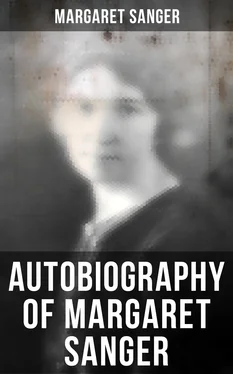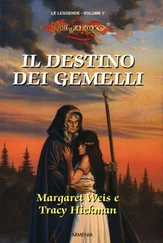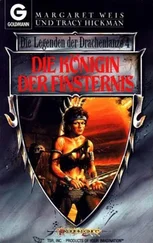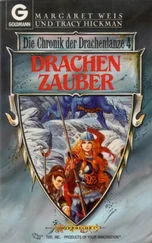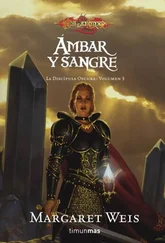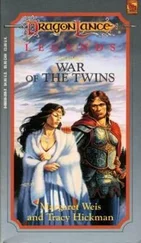And we made the most of our vacations. There were so many of us that we did not have to depend upon outsiders, and Saturday afternoons used to put on plays by ourselves in the barn. Ordinarily we were shy about displaying emotions; we looked upon tears and temper in other homes with shocked amazement as signs of ill-breeding. Play-acting, however, was something else again. Here we could find outlet for histrionic talent and win admiration instead of lifted eyebrows. I rather fancied myself as an actress, and often mimicked some of the local characters, to the apparent pleasure of my limited audience of family and neighbors. It was not long before I slipped into declaiming. The Lady of Lyons was one of my specialties:
This is thy palace, where the perfumed light
Steals through the mist of alabaster lamps,
And every air is heavy with the sighs
Of orange groves, and music from the sweet lutes
And murmurs of low fountains, that gush forth
I’ the midst of roses!
All outdoors was our playground, but I was not conscious at the time of my love for the country. Things in childhood change perspective. What was taken for granted then assumes great significance in later life. I knew how the oak tree grew and where the white and yellow violets could be found, and with a slight feeling of superiority I showed and expounded these mysteries to town children. Not until pavements were my paths did I realize how much a part of me the country was, and how I missed it.
We were all, brothers and sisters alike, healthy and strong, vigorous and active; our appetites were curtailed only through necessity. We played the same games together and shared the same sports—baseball, skating, swimming, hunting. Nevertheless, except that we all had red hair, shading from carrot to bronze, we were sharply distinct physically. The girls were small and feminine, the boys husky and brawny. When I went out into the world and observed men, otherwise admirable, who could not pound a nail or use a saw, pick, shovel, or ax, I was dumfounded. I had always taken for granted that any man could make things with his hands.
I expected this even of women. My oldest sister, Mary, possessed, more than the rest of us, an innate charm and gentleness. She could do anything along domestic lines—embroidery, dress making, tailoring, cooking; she could concoct the most delicious and unusual foods, and mix delicate pastries. But she was also an expert at upholstering, carpentry, painting, roofing with shingles or with thatch. When Mary was in the house, we never had to send for a plumber. She rode gracefully and handled the reins from the carriage seat with equal dexterity; she could milk a cow and deliver a baby; neighbors called her to tend their sick cattle, or, when death came, to lay out the body; she tutored in mathematics and Latin, and was well-read in the classics, yet she liked most the theater, and was a dramatic critic whose judgment was often sought. In all that she did her sweetness and dearness were apparent, though she performed her many kindnesses in secret. She left the home roof while I was still a child, but she never failed to send Christmas boxes in which every member of the family shared, each gift beautifully wrapped and decorated with ribbons and cards.
My brothers were ardent sportsmen, although they might not have been outstanding scholars. They could use their fists and were as good shots as their father. For that matter, we all knew how to shoot; any normal person could manage a gun. Father was a great hunter. Our best times were when friends of his came to spend the night, talking late, starting early the next morning for the heavy woods which were full of foxes, rabbits, partridge, quail, and pheasant.
Someone was always cleaning and oiling a gun in the kitchen or carrying food to the kennels. The boys were devoted to their fox and rabbit hounds, but father lavished his affection on bird dogs. Our favorite came to us unsought, unbought, and I had a prideful part in his joining the family. One afternoon I was sitting alone by the nameless brook which ran by our house, clear and cool, deep enough in some places to take little swims on hot summer days. I was engaged in pinning together with thorns a wreath of leaves to adorn my head when a large, white dog ambled up, sniffed, wagged his tail, and seemed to want to belong. This was no ordinary cur, but a well-bred English setter which had evidently been lost. How father would love him!
Even though the dog had no collar, I was slightly uneasy as to my right of ownership. One conspicuous brown-red spot on the back of his neck simplified my problem. Unobtrusively I slipped him into the barn, tied him up, selected a brush, dipped it in one of the cans of paint always on hand, and multiplied the one spot by ten. For a day, waiting for them to dry, I fed him well with food filched from the rations of the other kennel occupants, then led him forth, his hairy dots stiffened with paint, and offered him to father as a special present.
Accepting the gift in the spirit in which it was intended, father admired the dog’s points, and, with an unmistakable twinkle, lent himself to a deception which, of course, could deceive nobody. When Saturday night came, the neighborhood looked the animal over; none knew him so we named him Toss and admitted him to the house. Later he bred with an Irish setter of no importance, and one of the resultant puppies, Beauty, shared his privileges.
Toss, as well as everybody else, subscribed to the idea that the “artist” in father must be catered to. With the first sound of his clearing his throat in the morning Toss picked up the shoes which had been left out to be cleaned, and carried them one at a time to the bedroom door, then stood wagging his tail, waiting to be patted. Father’s shoes were always polished, his trousers always creased. Every day, even when going to work, he put on spotless white shirts with starched collars and attachable cuffs; these were something of a luxury, because they had to be laundered at home, but they got done somehow.
Father took little or no responsibility for the minute details of the daily tasks. I can see him when he had nothing on hand, laughing and joking or reading poetry. Mother, however, was everlastingly busy sewing, cooking, doing this and that. For so ardent and courageous a woman he must have been trying, and I still wonder at her patience. She loved her children deeply, but no one ever doubted that she idolized her husband, and through the years of her wedded life to her early death never wavered in her constancy. Father’s devotion to mother, though equally profound, never evidenced itself in practical ways.
The relation existing between our parents was unusual for its day; they had the idea of comradeship and not merely loved but liked and respected each other. There was no quarreling or bickering; none of us had to take sides, saying, “Father is right,” or, “Mother is right.” We knew that if we pleased one we pleased the other, and such an atmosphere leaves its mark; we felt secure from emotional uncertainty, and were ourselves guided towards certainty in our future. We were all friends together, though not in the modern sense of familiarity. A little dignity and formality were always maintained and we were invariably addressed by our full names. The century of the child had not yet been ushered in.
In those days young people, unless invited to speak, were seen and not heard. But as soon as father considered us old enough to have ideas or opinions, we were given full scope to express them, no matter how adolescent. He hated the slavery of pattern and following of examples and believed in the equality of the sexes; not only did he come out strongly for woman suffrage in the wake of Susan B. Anthony, but he advocated Mrs. Bloomer’s bloomers as attire for women, though his wife and daughters never wore them. He fought for free libraries, free education, free books in the public schools, and freedom of the mind from dogma and cant. Sitting comfortably with his feet on the table he used to say, “You should give something back to your country because you as a child were rocked in the cradle of liberty and nursed at the breast of the goddess of truth.” Father always talked like that.
Читать дальше
